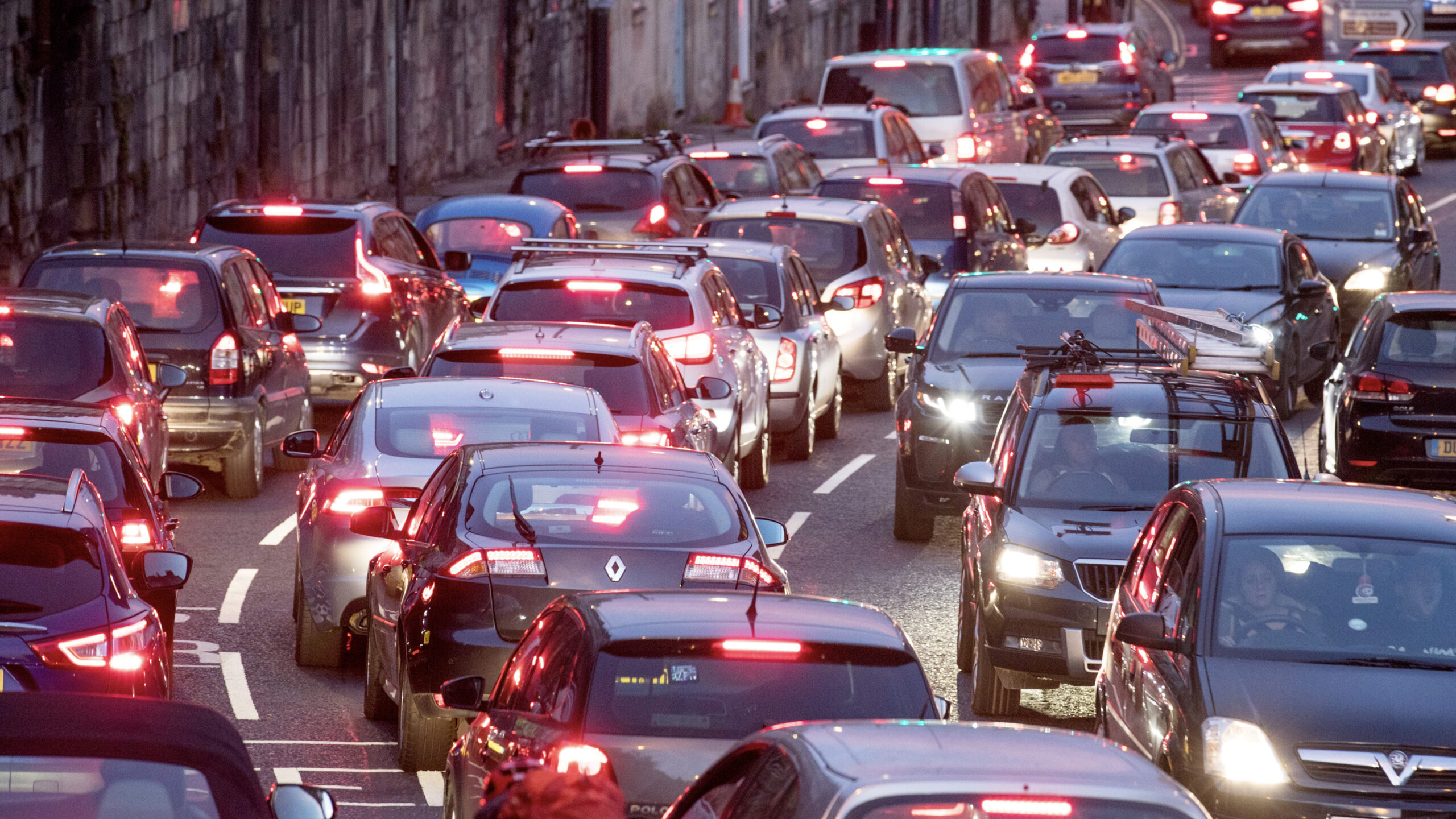
Editor’s note: UK in a jam over transport emissions

The latest edition of our Sustainable Views newsletter
Dear reader,
“The UK is the first major economy to halve its emissions – having cut them by 50 per cent between 1990 and 2022,” shouted the UK government earlier this month. The conclusion came as official statistics showed the country’s emissions dropped by 3.5 per cent in 2022, compared with 2021. The news was not universally positive, however. One notably poor performer was domestic transport, where emissions rose by 1.6 per cent.
The government blamed a rise in travel following the Covid-19 pandemic. But this is not the full story. Domestic transport is now the largest single emitter in the UK, responsible for 28 per cent of the country’s greenhouse gas emissions. Road vehicles, mainly passenger cars, are the most significant source of emissions in the sector, and research published today by non-profit Transport and Environment suggests this state of affairs is not about to change anytime soon.
The analysis shows UK sport utility vehicle sales have increased by 23 per cent since 2022 and the number of these big beasts on the road now stands at 1.1mn. At the end of September 2023, there were a total of 33.6mn cars in the UK.
In 2021, 50 per cent of all new car registrations in the UK were SUVs. In 2023, that figure rose to 60 per cent and SUVs could make up 75 per cent of new registrations by 2027, “blowing a hole in UK carbon budgets”, says T&E. “83 per cent of these vehicles are petrol and diesel cars, hybrids, or plug-in hybrids “producing significant carbon emissions.”
The future of cars has become politicised in many countries as city mayors, generally from leftwing or green parties, act to make more space for bikes and pedestrians and to lower speed limits to improve quality of life and reduce emissions, and myths around the reliability and sustainability of electric vehicles compared with combustion engines abound.
UK Prime Minister Rishi Sunk insists he is on the side of the motorist and will support people “to use their cars to do all the things that matter to them”. He has opted to delay a ban on petrol and diesel cars by five years, though the government has kept its zero-emission vehicle mandate setting out the percentage of new zero emission cars and vans manufacturers will be required to produce each year up to 2030.
In response to all this hot air, the UK Climate Change Committee published a letter underlining the importance of giving businesses and consumers clarity about the direction of travel. It also warned that without change, the UK will not meet its climate commitments, highlighting “the switch to electric vehicles is the largest single driver of future emissions reduction[s]”.
T&E UK EV and fleets officer Ralph Palmer says “carmakers, and the government, need to prioritise and support the production and sales of smaller, more affordable battery electric vehicles”.
Earlier this week, T&E published a separate analysis looking at EV sales across Europe and concluded changing corporate fleets are key to driving EV sales and bringing down road transport emissions. Indeed, on February 6, the European Commission opened a public consultation on greening company cars, which is open until April 30 if you fancy proffering your views.
Do get in touch if you have any interesting stories about electrifying your company’s corporate fleet to meet climate and sustainability targets, or opinions on what policy and investment support governments should be giving to ensure that transport emissions fall.
You can find the rest of this week’s news in our weekly round-up, including the provisional deal by the European parliament and the European Council on strengthening EU air quality standards. We also take a look at research by BayWa RE showing the majority of European businesses have a green energy strategy in place, but nearly half of them are only just starting to implement their plans.
Have a good weekend,
Philippa
Philippa Nuttall is the editor of Sustainable Views
This week’s top content
Internal carbon pricing can shield businesses from CBAM ‘ripple effect’
How John Podesta will move ahead with John Kerry’s carbon markets plans
Short-term costs and usability issues loom over EU’s green bond standard
Similar Articles

Editor’s note: inconvenient truths

Editor’s note: winds of change


